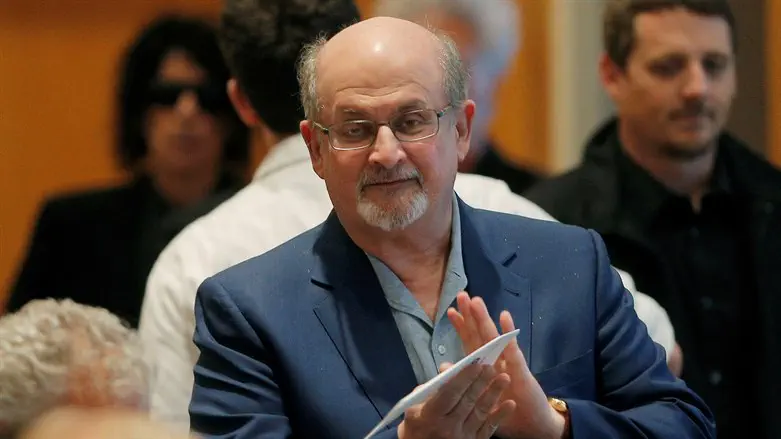
British author Salman Rushdie spoke told the BBC in an interview that he is physically "more or less OK" nearly a year after he was stabbed as he prepared to give a lecture in New York, but acknowledged he still has “crazy dreams” about the incident and is still processing it.
Rushdie was stabbed while on stage at a literary festival in Western New York last August. He was blinded in his right eye and his left hand was badly injured.
The suspect, Hadi Matar, has been charged with attempted murder. He has pleaded not guilty and is being held without bail.
When asked if he will attend the trial later this year, Rushdie said it depended on whether Matar changes his plea.
"A couple of thousand people saw [it happen]. I'm led to believe that [his plea] is just a holding play and that might well change. If I was his lawyer, I would advise him to do so,” Rushdie told the BBC.
"If he changes his plea to guilty then actually there's not a trial, there's just a sentencing, and it may well be that then my presence isn't required.”
"I'm in two minds about it," he continued. "There's one bit of me that actually wants to go and stand on the court and look at him and there's another bit of me that just can't be bothered. I don't have a very high opinion of him. And I think what is important to me now is that you're able to find life continuing. I'm more engaged with the business of, you know, getting on with it."
Rushdie, who is currently writing a book about the near-fatal stabbing, told the BBC the book won't be more than a "couple of hundred of pages" long.
"There's this colossal elephant in the room and, until I deal with that, it is difficult to take seriously anything else," he added.
Rushdie since 1989 has been the target of an Iranian fatwa calling for his murder for allegedly blaspheming Islam and its prophet Mohammed in his book "The Satanic Verses."
In 2012, an Iranian foundation added another $500,000 to the reward for killing Rushdie, raising the total bounty for his death to $3.3 million.
Rushdie spent a decade in hiding after Iran's spiritual leader, Ayatollah Ruhollah Khomeini, issued the 1989 fatwa against him for his book.
Although Iran's foreign ministry in 1998 assured Britain that Iran would do nothing to implement the fatwa, current supreme leader Ayatollah Ali Khamenei in January 2005 reaffirmed that Rushdie was considered an apostate whose murder was authorized under Islam.
